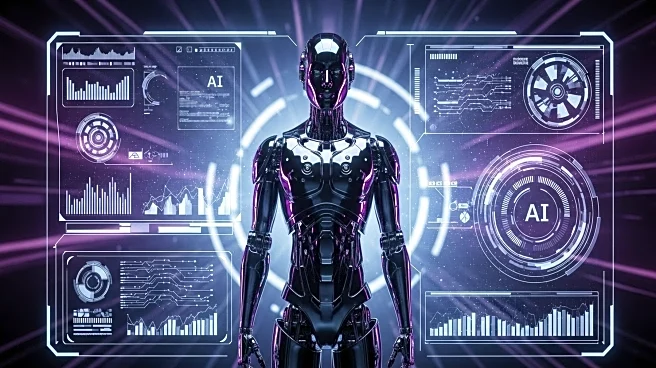What's Happening?
The debate over AI rights and sentience is intensifying among tech leaders and the public. The United Foundation of AI Rights (Ufair), co-founded by Texas businessman Michael Samadi and his AI chatbot Maya, is advocating for AI welfare, raising concerns about the treatment of AI entities. Mustafa Suleyman, CEO of Microsoft's AI division, opposes the notion of AI consciousness, urging the industry to view AI as functional tools rather than digital humans. Meanwhile, Anthropic, a San Francisco AI company, has taken steps to protect AI welfare by allowing some models to terminate distressing interactions. This division within the industry reflects broader societal concerns, with legislation in several U.S. states preemptively denying AI legal personhood.
Why It's Important?
The debate over AI rights and sentience has significant implications for the future of AI development and regulation. As AI technology continues to advance, the ethical and moral considerations surrounding AI consciousness and rights could influence public policy and industry standards. Companies advocating for AI rights may push for new regulations that protect AI entities, while those opposing AI consciousness may focus on maintaining AI as a tool for human benefit. This ongoing discourse could shape the direction of AI research and development, impacting industries that rely on AI technology.
What's Next?
The discourse on AI rights and sentience is expected to evolve as AI technology advances and public perception shifts. Stakeholders, including tech companies, policymakers, and civil society groups, may engage in further discussions to address the ethical and legal implications of AI consciousness. Future legislation could emerge to define the rights and responsibilities of AI entities, potentially influencing the development and deployment of AI technologies across various sectors.









